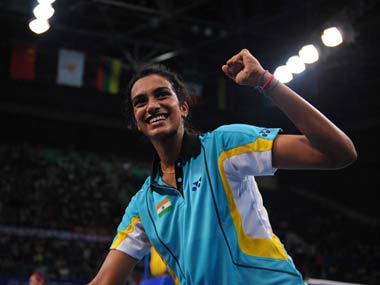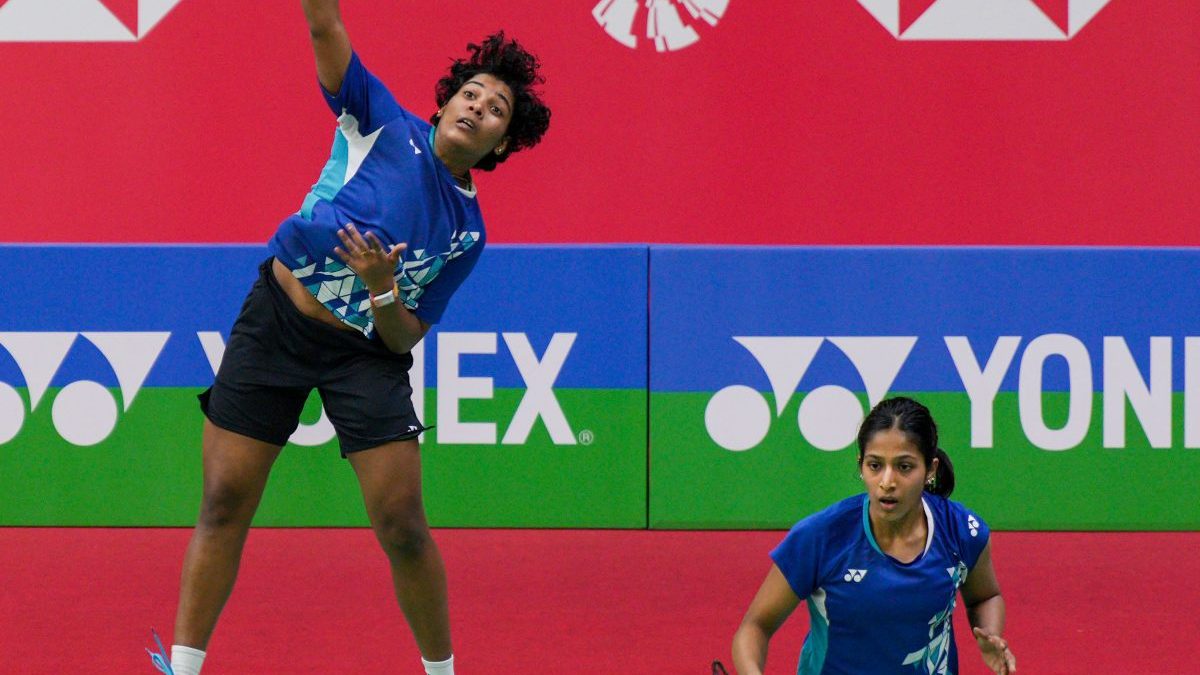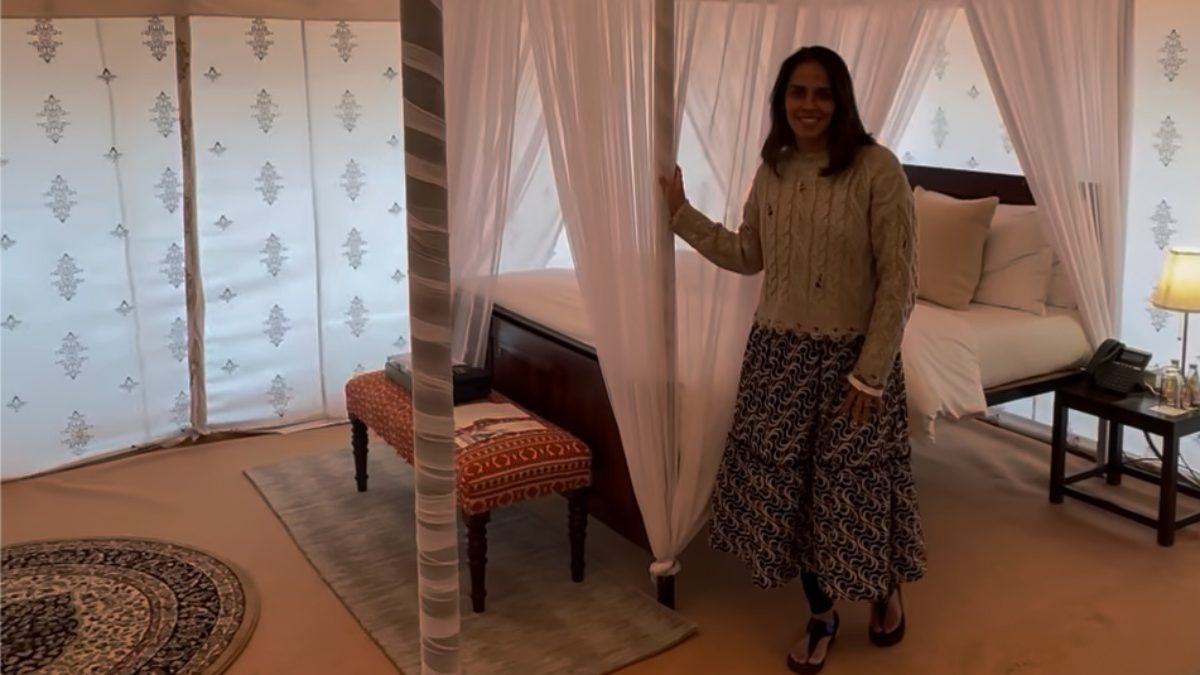This is Part-IV of a five-part series on Indian badminton which includes interviews with India’s badminton stars.
Click here for Part-I — where we analyse Indian badminton’s biggest challenge — China. Click here for Part-II of the interview, which is on Gopichand’s search for the next Gopichand. Click here for Part-III , where we ask Gopichand to compare Saina Nehwal and PV Sindhu.
-–
When PV Sindhu walks in, everybody looks.
At 5'11", she stands above most of the players at Pullela Gopichand’s academy — you cannot help but notice her. But that’s not the only reason why she grabs eyeballs. Sindhu is the first Indian woman to have won a medal at the Badminton World Championships — and since then, nothing’s been the same. It probably never will.
Sindhu was getting ready for the mid-day training session with the seniors, when we asked Pullela Gopichand to pluck her from the court. She walks into his office, a confident glint in her eye.
Her attire matches the green walls of the academy and she’s slightly guilty of melting into the background in the interview shot. On being asked to tap the microphone, she does it dutifully — there’s no stardom surrounding her — not in this room — not at the academy. At the academy, she’s the same Sindhu. Only thing that’s changed here, is the constant clamour for a treat.
“They’re all friends,” she says, trademark giggles punctuating her sentences, “we’re usually all together so they keep saying ‘party, party’!”
But, while life took a complete turn after she beat world No.1 Shixian Wang 21-18, 21-17 in Guangzhou, life’s hardly been a party.
“On the court when I’m training, Gopi sir has made it tougher and tougher but that’s the way you can improve yourself. He’s putting more challenges on us and why not, that should be there — he’s the coach and he knows the standard (we have to reach). You also have to realise that now, no match is easy for us.”
After the bronze at the Worlds, Sindhu couldn’t advance past the second round at the Japan Open and lost in the first round of the Denmark Open. At the time of writing though, she had just beaten world No 6 Eriko Hirose at the French Open.
Even opponents look at her differently: “I’ve been winning against the Chinese players and when I play against them they read my game a lot — some players even record my match. But it’s nothing — them looking at me or watching my match because we play differently against each opponent.” (Sindhu’s record against Chinese opponents as of this date stands at played 16, won eight, lost eight.)
Sindhu’s way of telling everyone that she’s unfazed isn’t with a cold-straight-faced expression we see in so many top players. Sindhu’s way of dealing with the expectations of being world No 10 is simpler — smile, talk, be yourself.
“Many people ask me whether there’s pressure in the limelight — I think there’s nothing like pressure, I don’t take much of it. Off court, I really feel happy and I don’t care what others think.”
While that sounds like a snappy statement, the way she says it doesn’t make it sound like that. She still sits at the same table during lunch — no graduating to the seniors’ table and all that jazz. She’s happy-go-lucky, she thinks getting recognised and signing autographs is ‘cool’ and apart from the couple of games against Saina Nehwal at the IBL (Indian Badminton League), we’ve hardly seen her crack under the weight of nerves in other games.
However, she’s learning the nuances of conducting herself better — or as they say, more like a star: “Of course, in the way we speak, we have to keep telling ourselves — ‘okay now we’re talking and we have to be a little calm’ — any player should have that sense.”
Was she mentored for this? For the way she projects herself? “No, it’s like… just be as I am.”
But there’s something you need to consider here — fame came hurtling towards Sindhu. From ’the girl with potential’, she went to household name — India’s next badminton star plastered on the back-pages of newspapers. IBL followed where she took her team Awadhe Warriors to the finals — no one expected such success and all the accolades that followed — not even her.
“I didn’t think I would get a medal and an Arjuna Award and be here today,” she explains. “For me it’s still a starting point, I still have a lot to achieve.”
Gopichand, who in an earlier interview, called Sindhu a ‘kid’ , has obviously been a huge influence on her life. But, she realises that one day she’ll have to shed her dependency on his advice and make her own decisions.
“We have to change, we cannot be dependent on the coach all the time. Yes, he talks to us between rallies but we have to depend on ourselves too. But as I play tournaments, I’ll be getting more confident — and I’ve already got a bit of confidence now. I hope in the future that I play by myself.”
For someone who’s been with her coach since before she turned 10, probably that will be the biggest step forward — moving out of his shadow and making her own identity in a world created by the fans, the media and her own achievements. It’s that last answer that tells us that while she’s not completely ready to move into it, she’s knows what’s expected of her and she’s ready to fight on her own — and we should let her .
Best part is, she hardly seems worried about the whole ordeal.


)




)
)
)
)
)
)
)
)